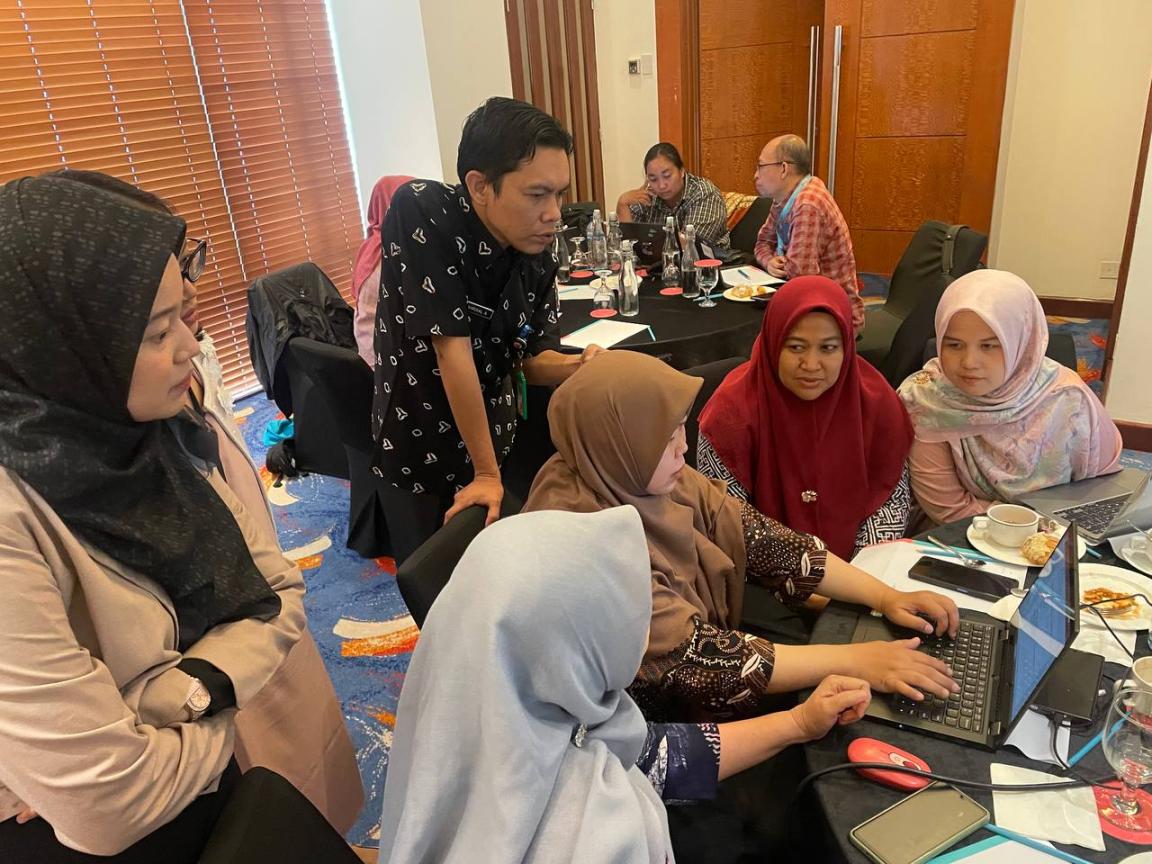
In October 2024, CHISU partnered with the Ministry of Health in Indonesia to convene maternal and neonatal health (MNH) program staff to advance evidence-based decision and policy interventions to ultimately improve health outcomes for mothers and children.
This three-day training for staff from national, provincial, and district-level MNH programs aimed to enhance expertise in cost-effective analysis to generate the evidence needed for targeted interventions to achieve the greatest impact. Participants learned how to evaluate the effectiveness of programmatic interventions and policy options based on their impact on health outcomes and their total cost. This analysis will help inform strategic decision-making from various health information systems.
The training covered these five modules, with each one building on the previous one to ensure a comprehensive understanding of the topic:
- Framing and Economic Evaluation
- Assessing Health Impact
- Cost Analysis
- Economic Evaluation
- Sensitivity Analysis
Trainers introduced participants to costing interventions and economic evaluation methods such as decision tree models and incremental cost-effective ratio analysis. Participants put their new skills into practice using data managed by the national MNH program.
Cost-effective analysis has emerged as an important tool for evaluating health programs, enabling policymakers to make informed decisions that maximize health benefits while minimizing costs. From May to July 2024, CHISU conducted a data use needs assessment with the MOH’s technical directorates and programs that revealed a need for data analytics capacity strengthening. The MNH program confirmed the need for training on cost-effective analysis and its application for improved decision-making and policy interventions.
“We have collected various data from implemented programs, but so far, our monitoring has only focused on indicators,” said Muhammad Yusuf, the MOH’s Head of Surveillance Working Team for the National MNH Program. “We need an analytical approach to assess the effectiveness of these programs. This training will significantly improve our ability to utilize the data more effectively.”
Following the training, the MNH program in DKI Jakarta plans to apply this knowledge to assess the impact of administering iron, vitamin D, vitamin C, and zinc in reducing neonatal mortality. Staff anticipate that the findings will guide next year's planning and budgeting efforts, demonstrating a strong commitment to using data for informed decision-making.
Other Recent News
A high-level delegation from USAID, CDC, PEPFAR, and the U.S. Department of State visited Haiti in October 2024 to learn about progress and challenges. Read more ›
CHISU @ 8th Annual Symposium on Health Systems Research
We are excited to be at the 8th Global Symposium on Health Systems Research (HSR) in Nagasaki, Japan from November 18-22! We’ll be sharing our work supporting health systems strengthening by investing in HIS governance approaches for sustainable digital health transformation. Read more ›